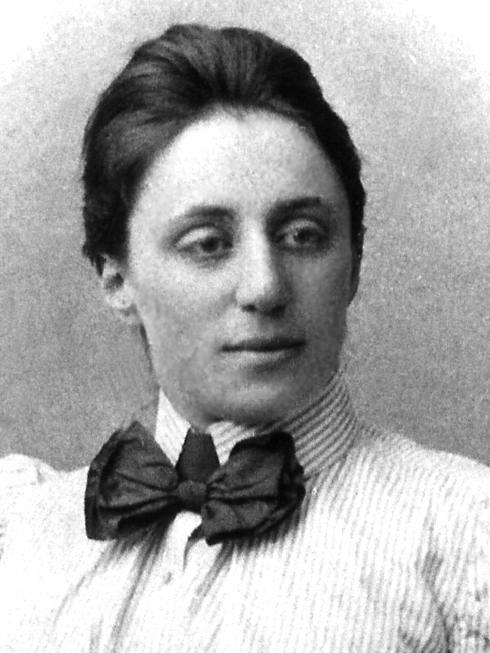Google Doodle Emmy Noether: 5 Things To Know About One Of The Earliest Women In Mathematics

Google Doodle paid homage Monday to Emmy Noether, a little-known 20th century German mathematician whose trailblazing work in the fields of algebra and theoretical physics was recognized by Albert Einstein as having “enormous importance” on future mathematicians. Noether (1882-1935) was a pioneer for women at a time when education was largely reserved for men.
“Noether was passionate about math, despite living in an era where women were often excluded from these subjects,” wrote the doodle’s artist, Sophie Diao. “But there weren’t any obstacles that would stop Noether from her studies. In this doodle, each circle symbolizes a branch of math or physics that Noether devoted her illustrious career to.” Google’s logo was modified to include references to time, group theory and continuous symmetries, for which Noether’s work was of huge importance.
Noether died at the age of 53. She would have been 133 Monday. Here are five things to know about her contributions to math.
1. Noether studied at the University of Erlangen. Noether enrolled at the German university at the age of 18; however, because of her gender, she was barred from taking classes. She sat in on courses for two years before taking and passing the test that allowed her to become a doctoral student in mathematics. She later taught at the university for seven years without pay.
2. Albert Einstein was a huge fan. “In the judgment of the most competent living mathematicians Fräulein Noether was the most significant creative mathematical genius thus far produced since the higher education of women began,” the famed physicist wrote in a May 1935 New York Times article. Fräulein is the German equivalent of the English term Miss. “In the realm of algebra, in which the most gifted mathematicians have been busy for centuries, she discovered methods which have proved of enormous importance in the development of the present-day younger generation of mathematicians.”
3. Mathematician David Hilbert tried to get Noether a teaching job at the University of Göttingen. The university’s male faculty was against it. "What will our soldiers think when they return to the university and find that they are required to learn at the feet of a woman?" one asked. Hilbert took Noether on as a guest lecturer. She was finally brought on full-time in 1919.
4. Students from all over came to study under Noether. During her time at Göttingen, Noether gained a small following of students who became known as “Noether’s boys.” They came from as far as Russia to attend Noether’s lectures.
5. Noether moved to the U.S. in 1933. Noether was born to a Jewish family and was forced out of the university, along with other German Jews, by the Nazis. She moved to the U.S. where she accepted a position at Bryn Mawr College in Pennsylvania.
© Copyright IBTimes 2024. All rights reserved.






















